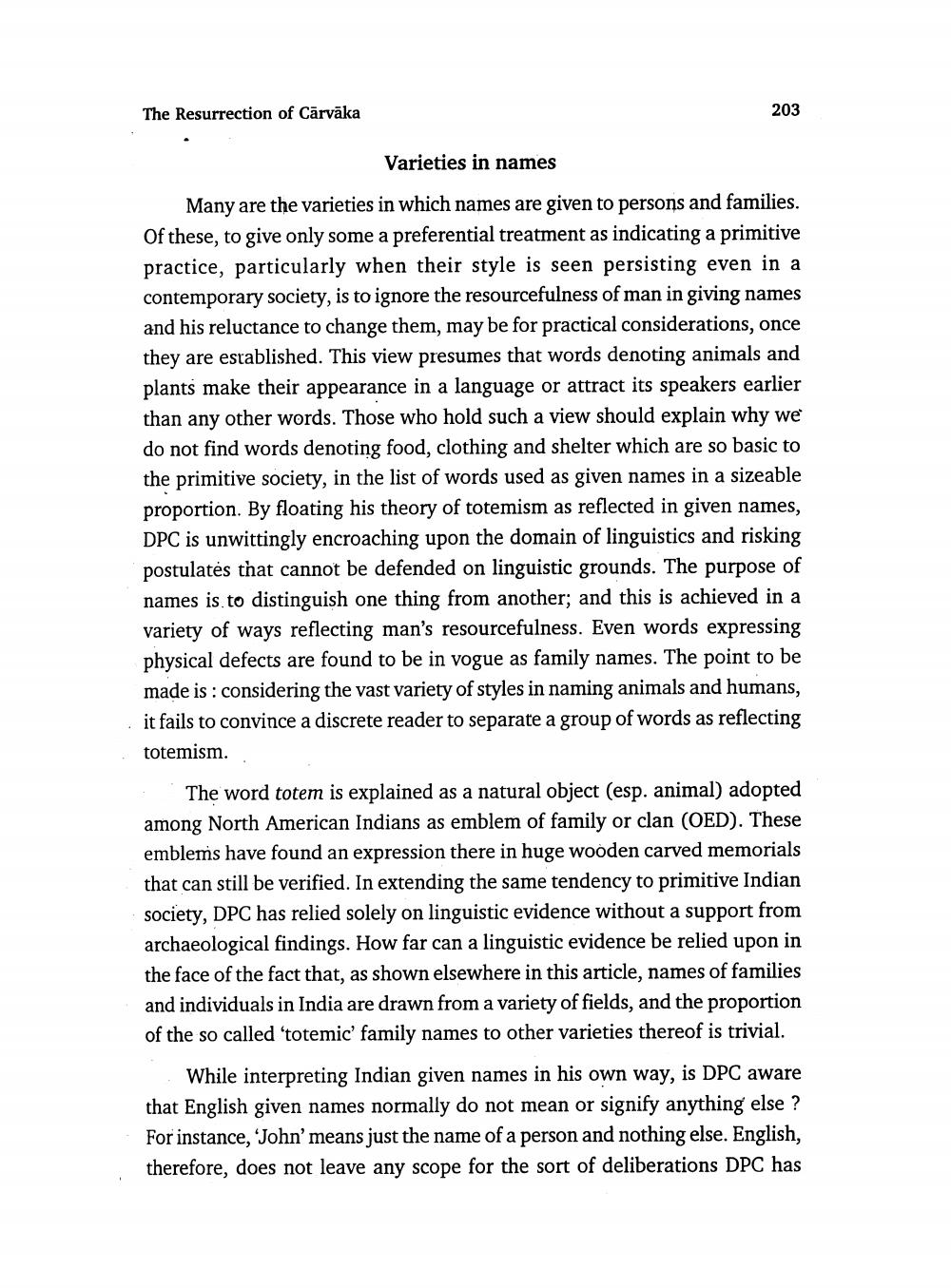________________
The Resurrection of Cārvāka
203
Varieties in names
Many are the varieties in which names are given to persons and families. Of these, to give only some a preferential treatment as indicating a primitive practice, particularly when their style is seen persisting even in a contemporary society, is to ignore the resourcefulness of man in giving names and his reluctance to change them, may be for practical considerations, once they are established. This view presumes that words denoting animals and plants make their appearance in a language or attract its speakers earlier than any other words. Those who hold such a view should explain why we do not find words denoting food, clothing and shelter which are so basic to the primitive society, in the list of words used as given names in a sizeable proportion. By floating his theory of totemism as reflected in given names, DPC is unwittingly encroaching upon the domain of linguistics and risking postulates that cannot be defended on linguistic grounds. The purpose of names is to distinguish one thing from another; and this is achieved in at variety of ways reflecting man's resourcefulness. Even words expressing physical defects are found to be in vogue as family names. The point to be made is considering the vast variety of styles in naming animals and humans, it fails to convince a discrete reader to separate a group of words as reflecting totemism.
The word totem is explained as a natural object (esp. animal) adopted among North American Indians as emblem of family or clan (OED). These emblems have found an expression there in huge wooden carved memorials that can still be verified. In extending the same tendency to primitive Indian society, DPC has relied solely on linguistic evidence without a support from archaeological findings. How far can a linguistic evidence be relied upon in the face of the fact that, as shown elsewhere in this article, names of families and individuals in India are drawn from a variety of fields, and the proportion of the so called 'totemic' family names to other varieties thereof is trivial.
While interpreting Indian given names in his own way, is DPC aware that English given names normally do not mean or signify anything else? For instance, 'John' means just the name of a person and nothing else. English, therefore, does not leave any scope for the sort of deliberations DPC has




